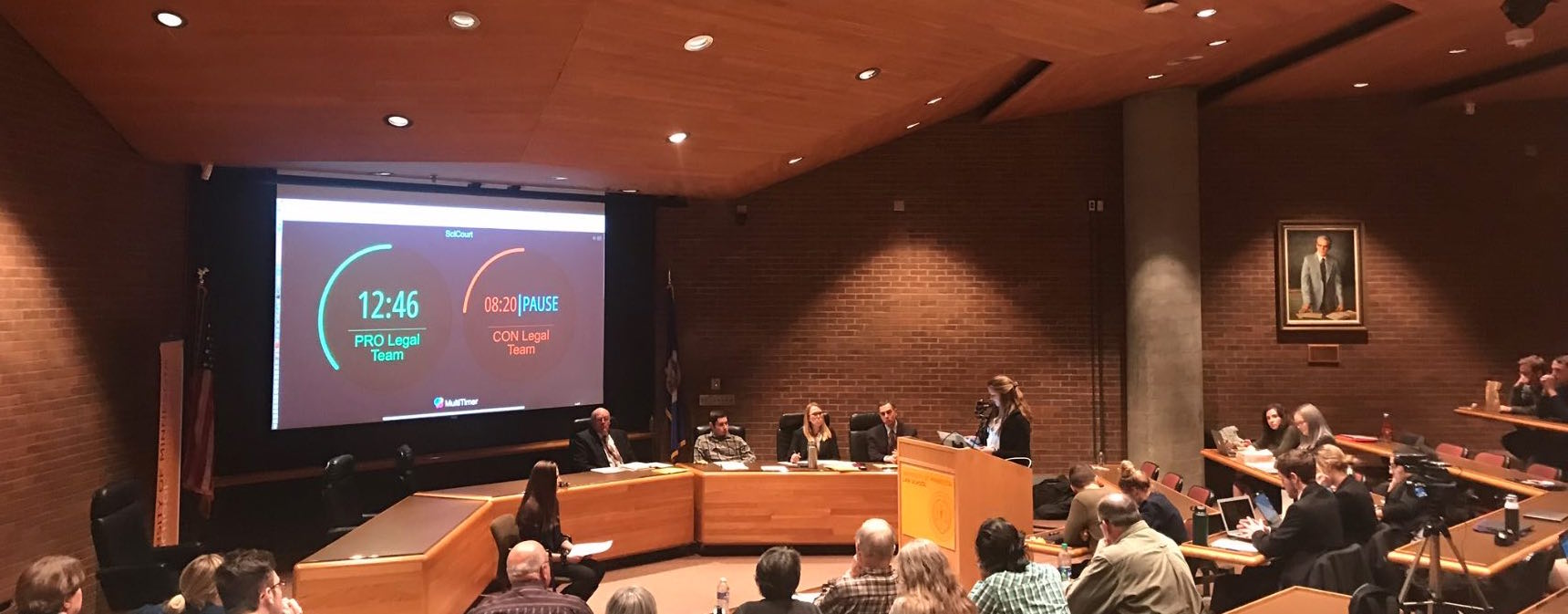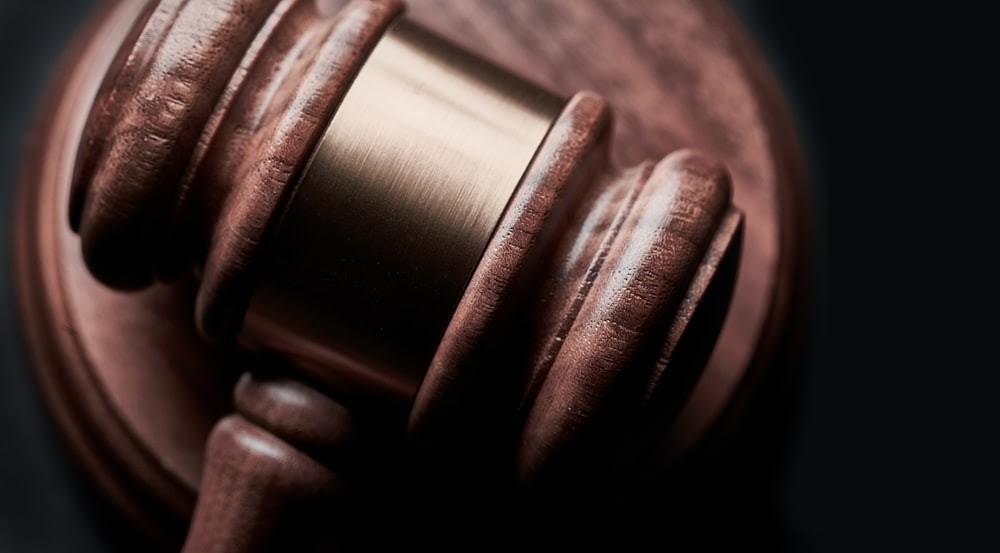
Welcome to Science Court!
Science Court is a project designed to combat polarization in American society and strengthen democracy. It is run as an interdisciplinary course in the University of Minnesota Honors Program involving students from across the university. The students select a controversial issue and spend an entire semester studying it in depth to determine the facts (based on sound scientific research) and then argue it in a mock trial in front of a jury of citizens with a mix of views and backgrounds. The public is engaged through compelling audio, video and online content generated by the students about the preparations, trial and verdict. The trial is free and open to the public.



The 2022 Science Court case is
Grading practices at the University of Minnesota can lead to bias, stress, and disincentivize learning, new innovative student assessment methods should be adopted
This year's Science Court is in partnership with the University of Minnesota (UMN) Student Senate. This topic is inspired by a Student Senate resolution, approved on December 3, 2020, requesting an extension of the UMN policy allowing students to opt for S/N grading (Satisfactory/Not satisfactory) in any course due to the COVID-19 pandemic. The Science Court case generalizes this to a full reevaluation of how students are assessed at UMN. This is timely considering increasing concerns regarding student mental health, the increased emphasis on student diversity and equity, changes in how students learn due to the technological environment, the increase in scholastic dishonesty facilitated by the internet and social media, and the rise of remote learning.
Science Court will consider student assessment holistically exploring what is known from scientific research in domains of knowledge informing this topic and propose two main strategies, Refine versus Reform, for the Student Senate to consider.
- The "Reform" (pro) approach proposes to replace the current UMN system with alternative methods for grading and student assessment proposed in the literature and tested at other institutions.
- The “Refine” (con) approach will argue to largely retain the current UMN grading system with modifications aimed at addressing its limitations based on research findings.
Stay tuned or follow us on twitter or join the Science Court mailing list to be kept informed.
LATEST BLOG POSTS
Depolarizing America: Episode 6
In this final episode of Depolarizing America, hosted by Matt Simonson, we recap this semester's SciCourt trial, talk to jurors before they deliberate, and announce the verdict! Our Media Team, Matt Simonson, Jess Jurcek, and Hannah Ihekoronye, also reflect on the semester, their initial expectations, and the work they've done this year.
Follow us on social media -- Instagram, Twitter, and Facebook @scicourt -- to be alerted next spring when SciCourt gavels back into session.
The verdict is in!

Photo by Bill Oxford on Unsplash
After months of preparation and debate, the verdict is finally in. By majority rule, the final verdict is to combat polarization in American society, a national mandatory service should be adopted.
A total of three juries deliberated on Sunday, each of which decided its own verdict. One jury voted in favor of a voluntary service with a 5-3 vote, while the other two juries voted in favor of the mandatory service program with a 6-1 and 6-0 vote.
Andrew Bremner, a member of the victorious pro legal team began the trial by saying, “service is more than something we do, it is something that defines who we are.” The pro team argued that their mandatory national service opportunities will promote a strong American identity among the citizens who participate.
Depolarizing America: Episode 5
In this fifth episode of Depolarizing America, hosted by Matt Simonson, we will be talking with the legal pro and con teams about their confidence for the trial and what they have done to prepare.
The University of Minnesota Science Court students are researching and debating whether mandatory service programs could work to create more political and racial harmony in the United States. This semester’s Science Court trial is on April 24, starting at 9 a.m. If you’re interested in attending virtually, register for the webinar here.
Follow us on social media -- Instagram, Twitter and Facebook at @scicourt.